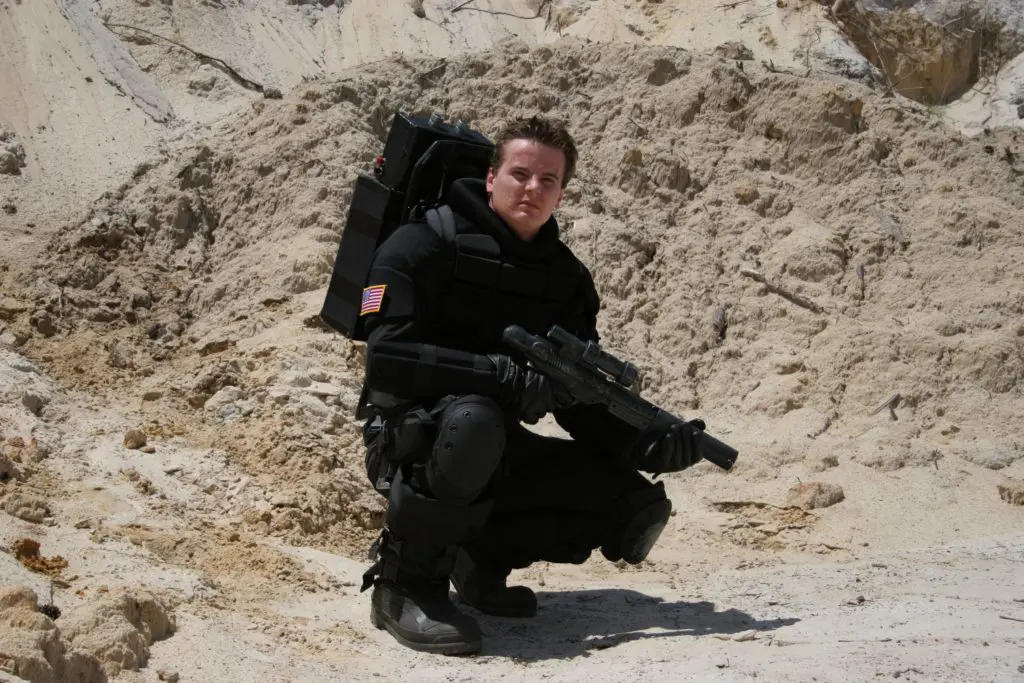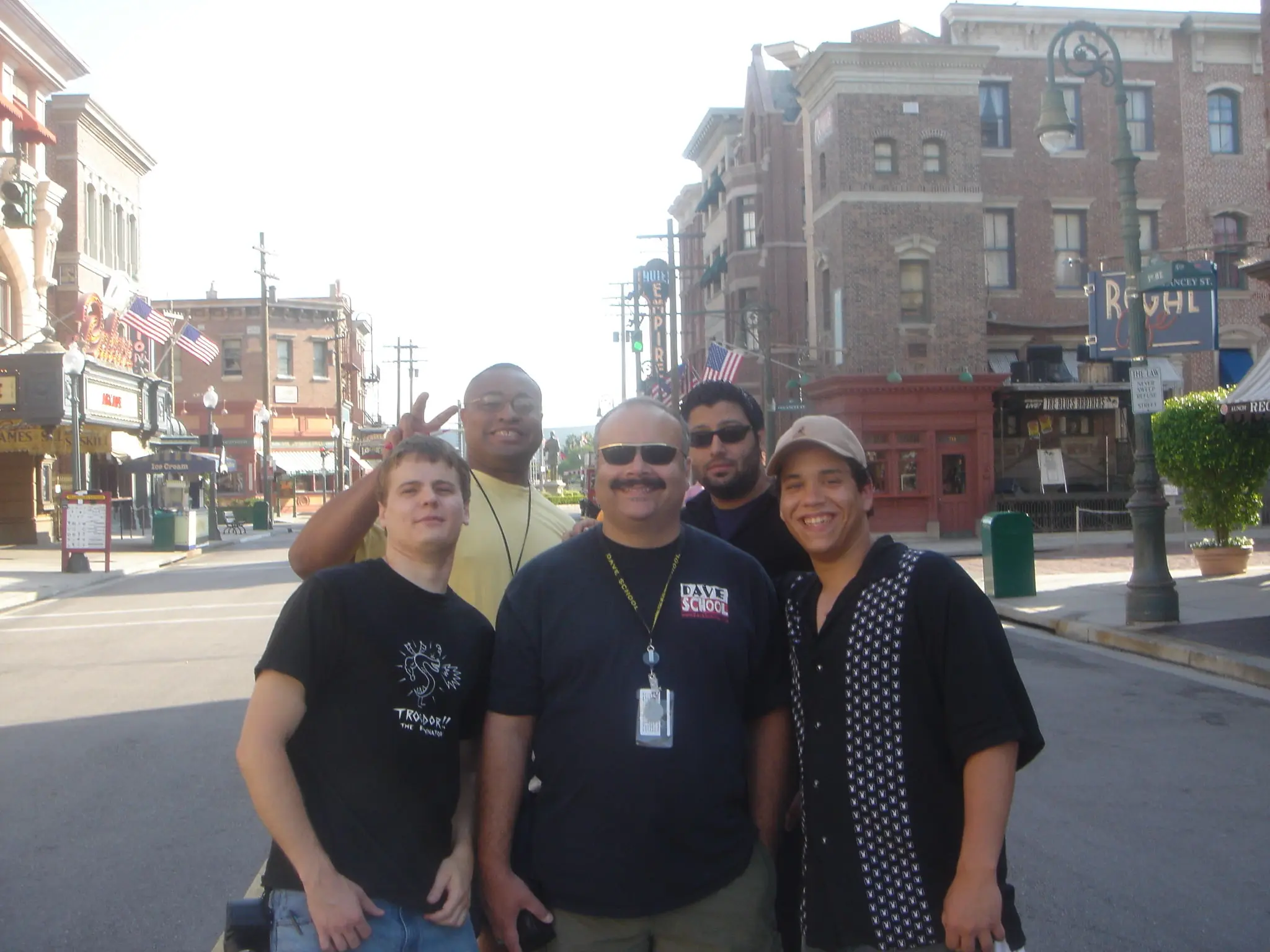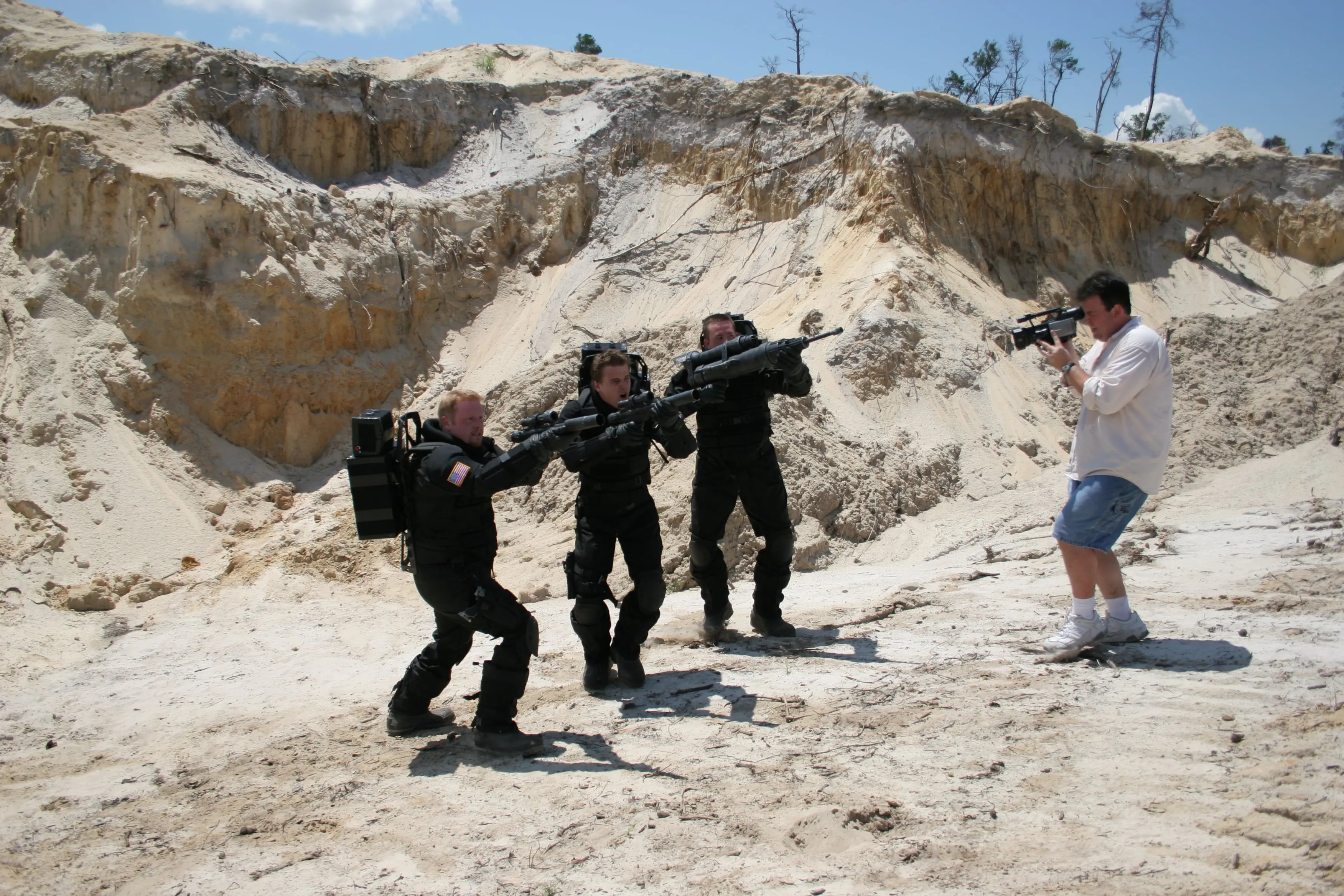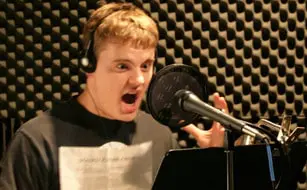Growing up, I had always been artistic and enjoyed watching movies, but more importantly, I loved the behind-the-scenes elements. In high school, I developed a love for computers and began traditional college as a Computer Science major. During winter break of my first year, I had the good fortune to be an extra on Evolution. It was fascinating, especially when Ivan Reitman directed us to hit the ground because we had just been wiped out by a large unseen creature! In addition to this, I also watched A Bug’s Life one evening and the extra featurettes. As I watched them talk with the digital artists it immediately clicked; there was a role that combined my love for film, art, and computers. Immediately I scoured my school’s catalog, put the wheels into motion and switched my major to Digital Art.
I would love to say this is where my journey ended, I graduated and began working on films. However, reality always takes a far more interesting journey. While I maintained good grades, put full effort into my major, and was a top student in my classes, traditional college was just not cut out for the specifics of digital filmmaking. Too many traditional art school stereotypes had carried over to this program. “What’s the meaning behind this piece…why are they using this color choice…what’s the intended mood?” Don’t get me wrong, I learned a lot of great art techniques and skills, but I just wanted to make a space scene or a monster. When I would try and do that, my artistic grades would suffer. When I followed the traditional route, my reel would suffer and ended up being nothing short of weird.
Entering into my final year, the studio that made Titan A.E. had been shut down and one of the artists became a professor at my school. He took us to Anime Expo ‘04 and what I saw from the other specialty schools, my reel was not only weird but garbage. He saw my potential but told me what I really needed was specialist training. Whether on an individual basis or at a school similar to the ones that had been at the event. I went home and began looking. Unfortunately, all seemed to be another 2 or 3 years and had General Ed requirements up front. I had that already! One can only analyze Kafka so much. Thanks to the power of search suggestion, The DAVE School started popping up. I won’t lie, with a name like that, I instantly assumed it was a joke, but clicked the link out of curiosity and I am so glad that I did. Reading the program descriptions and instructor backgrounds, I was blown away! I ordered an information packet and waited. When it came in the mail I popped in the DVD and was amazed by what I saw and couldn’t believe the school’s program was only a year long. I instantly knew I needed to know more. I scheduled a tour of the school and booked a flight!
Upon arrival at The DAVE School, the founder of the school gave me a tour. During the tour, he had me talk with a student, Michael Cliett who was working on the short Ghostbusters of LA. Both of them talked so enthusiastically about everything and the other students were making productions and they were loving it! When I returned to my college, I figured out I could apply my Math and Programming credits that had been lying dormant since the change in major as my independent study credits and graduate a semester earlier. I got everything in order and moved to Orlando to begin class in April 2005. I put in 110% in everything I could and spent as much time at the school as possible and absorbed everything. Sure enough, within a year I was production ready, and my reel was no longer garbage. I had four job offers to choose between and the one I chose; my Supervisor was former student Michael Cliett. I moved to Los Angeles to begin work on History Channel’s show Dogfights.
Even today, The DAVE School offers production training in a year. We have grown over the past 20 years and now offer accredited Bachelor’s degrees. The DAVE School still does things in their own way though. With our Bachelor’s program you have the ability to go through the one-year program, get a job and continue working on your General Eds and Bachelor’s degree online. We front load the major courses. At most colleges you won’t touch a 3D application until you have completed a few semesters of General Eds. At The DAVE School, you will be working in a 3D application in your first week. It is mainly these reasons I chose to come back and work at The DAVE School, but that is a story for another day. Today, I am not only an Instructor, but I also still work in the Visual Effects Industry with some of my most recent credits being Boss Level, Fear the Walking Dead, The Flash, Supergirl, Orange is the New Black, and much more.
DAVE School Faculty
Visual Effects Instructor
Visual Effects Production Diploma ProgramThe Visual Effects Production diploma program gives students a broad range of skills which allows them to pursue jobs in the computer graphics industry, including feature film and television effects, game art, print advertising, architectural visualization and military simulation.Visual Effects Production Degree ProgramThe Bachelor’s Degree in Visual Effects Production gives students a broad range of skills. The Visual Effects Bachelor’s Degree program consists of an additional 18 months post diploma and an additional 60 credits.





